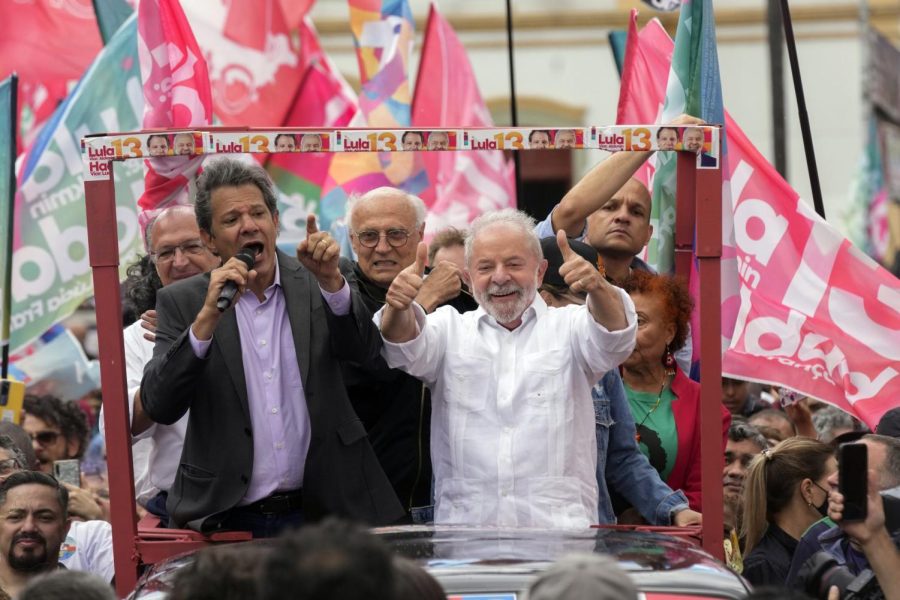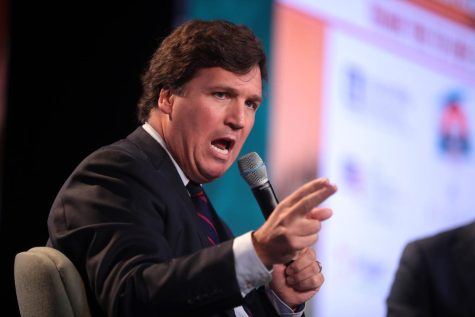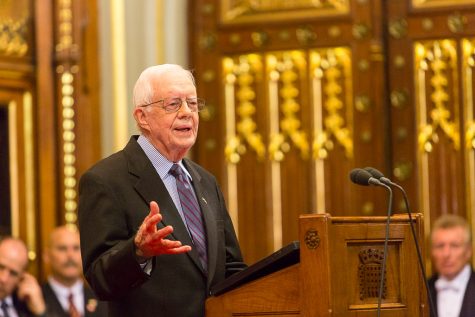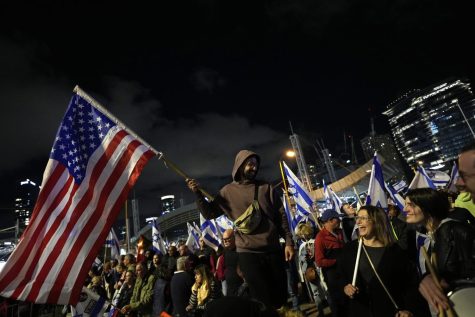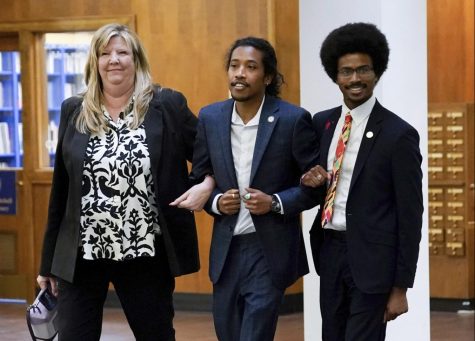Presidential race tightens in Brazil heading into second round
Former President Luiz Inacio Lula da Silva gives a thumbs up to supporters.
After a tight race on Oct. 2, the top two candidates in the first round of Brazilian presidential elections will go into a second round of voting. Many wait with anticipation for the results of the next round of voting and announcement of Brazil’s next president.
Oct. 2, Brazil held the first round of voting for all the candidates for the presidency of Brazil. The results spurred a runoff election that will be held on Oct. 30.
The two top candidates in this election are Luiz Incacio Lula da Silva, colloquially referred to as “Lula,” and Jair Bolsonaro. For a candidate to win in the first round of voting, they must have over 50% of the vote. After the results of the first round of voting, Lula secured 48.43% of the vote while Bolsonaro secured 43.2%. They will be the two candidates for the next round of voting.
The 2022 elections have been polarizing because of the top two candidates. According to the Council on Foreign Relations, the economy, public health, corruption, crime and education are the primary concerns of voters.
Bolsonaro, the current president, is running with a conservative campaign. Concerns about Bolsonaro include his hopes to weaken LGBTQ+ rights, his downplaying COVID-19 and other decisions made during his 2018 presidency.
Lula, candidate for the workers party, served two terms. Worries about his campaign include concerns about the workers party and its history.
Brazilians in Chicago were able to vote in the Loop on Sunday, Oct. 2.
“I don’t know that many people from Brazil here, so it was fun,” said Jonas Serpa Suza, DePaul junior. “It was a fun experience being around so many Brazilians. Portuguese was the language you heard as you were walking, which was a very different experience than what I’ve had so far.”
The voting system that was used in Chicago was the same one used by the rest of voters in Brazil: completely electronic. Many voters feel that this electronic voting system is trustworthy, citing the fact that it is paperless as one of the reasons.
“I would say this is one of the things that I really like about Brazilian elections,” DePaul junior Paola Venzon said. “We have a safe electronic device that we can vote, and the results can come right in the day, so we don’t have to wait a month, like here in the United States.”
According to Stanford University, Brazil is the first country to use a completely electronic voting system. Moreover, the electronic voting system has been shown by review to be trustworthy because it is not connected to the internet and is very difficult to hack according to Rest of Word.
The Brazilian election system varies from the American system in many ways. The voting age is 16, in contrast to the United States system which permits voting at age 18. For people aged 16, 17, and for those over 70, voting is not mandatory, but voting is mandatory for persons aged 18-70. This contrasts with the American voting system which is not mandatory for voters.
The Brazilian voting system works by popular vote, in contrast to the American system which utilizes the electoral college to determine the amount of votes a candidate receives.
According to Joice Brignoli, history teacher in Brazil, the political climate of Brazil is very different from years past, and the current presidency had something to do with this.
“The political climate in Brazil has exacerbated the thoughts of many Brazilian people, who up to Bolsonaro’s election didn’t feel empowered to speak their conservative minds,” Brignoli said.
Brignoli said that the way that the second round of voting is approached is very important.
“For the second round, I hope voters understand that politics is a collective subject,” Brignoli said. “We cannot interpret the vote as a way to get individual gain, or imagine that my social reality represents the entirety of Brazil.”


